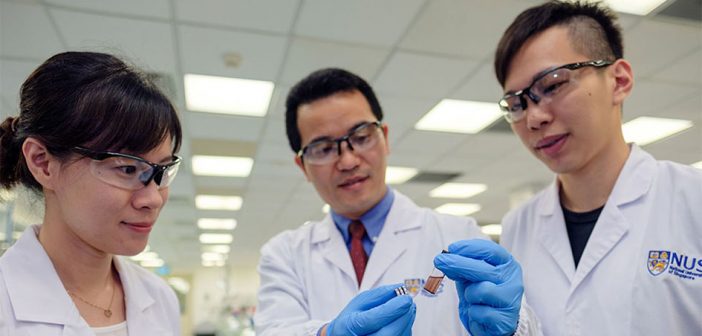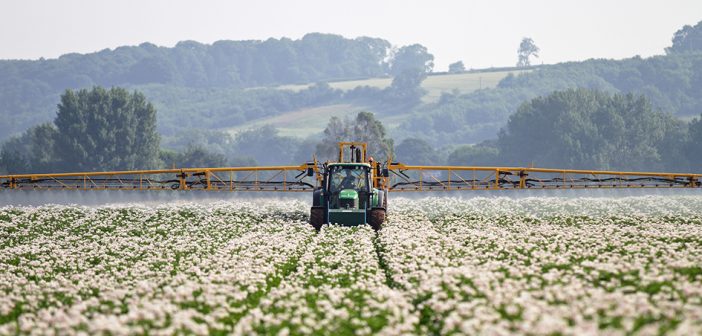Researchers at the National University of Singapore (NUS) have developed a novel way of detecting pesticide residues in fruit and veg – ‘micro magnets.’
The scientists developed a rapid and highly sensitive screening technique capable of detecting minute amounts of pyrethroids, and say their new method can reduce the screening period for the chemical to less than two hours.
Assistant Professor Yang Hongshun and his PhD student Miss Yu Xi developed polystyrene coated magnetic nanoparticles which can effectively extract pyrethorid residue from vegetable crops for analysis via simple magnetic separation. The nanoparticles are first added into a liquid sample obtained from vegetables, serving as ‘micro magnets’ to attract pyrethroid molecules. Pyrethroids bound on the nanoparticles are then washed off by a small amount of organic solvent and collected for analysis.
This innovation allows analysis to be completed in less than two hours, and is able to detect pyrethroids at a concentration level of as low as 0.02 nanograms per gram of vegetables. The nanoparticles can also be reused up to 30 times.
Yang, said, “Existing screening methods require long processing time and hence it could be challenging to apply such methods to detect pesticide residue in a large batch of samples, which is vital to ensuring food safety. Our method therefore offers a faster and more effective alternative.”
He added that the next stage is to detect pyrethroids in other foodstuffs, as well as looking to detect other types of pesticide and chemicals including mycotoxins and antibiotics.

Photo Credit: National University of Singapore
The post Could micro magnets detect pesticides? appeared first on Hort News on 5 April 2018.
